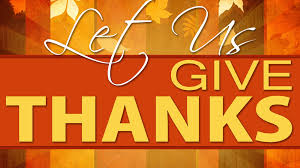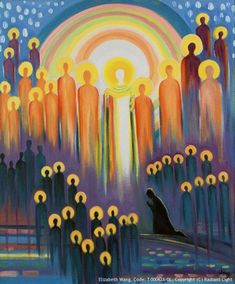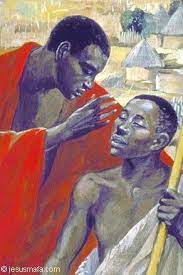
As some of you may know, Forrest and I recently spent a wonderful vacation in Florida visiting family near the St. Petersburg area. During the trip the local TV news was plastered with information about Winter, a famous and beloved bottleneck dolphin who lived at the Clearwater Marine Aquarium. Winter, a local icon, was in critical condition from a gastrointestinal infection and ultimately succumbed to her illness. This is sad story for sure, but what made it heartbreaking is the background about what made Winter so special.
Winter was found when she was just two months in the coastal waters of Florida on December 10, 2005. She was caught in a crab trap, which resulted in the loss of her tail. Winter was then taken to the Clearwater Marine Aquarium, where she was housed for nearly 16 years. The loss of her tail caused Winter to swim unnaturally, with her tail moving side to side instead of up and down. As a result, Winter was eventually fitted with a silicone and plastic tail that enabled her to swim normally.
Winter’s journey became the subject of the 2009 book Winter's Tale, the 2011 film Dolphin Tale, and its 2014 sequel. The story of her accident, the outpouring of support from the human community and her ultimate ability to thrive with her prosthetic touched the hearts of millions of people around the world, especially those living with hardship and challenge.
Over her 16 years, Winter became a highly popular attraction at the aquarium and her kind and playful nature became an inspiration to people who came to see her, especially those living with disabilities. She lived in her pool with two other dolphins, Hope and P.J. So many people visited Winter that she and her cohorts raised enough money to build a whole new wing to the aquarium. The news of Winter’s death has created an outpouring of messages as well as of tens of thousands of dollars to the aquarium.
It is amazing to think of the kind of impact that one of God’s creatures had on those around her.
Take Joey Gillespie. Tony wanted to be a marine biologist since he was 3, but that still didn’t make it easy for him to visit the Clearwater Marine Aquarium as a kid.
As someone with high-functioning Asperger’s syndrome, he struggled in situations with lots of people or noise — the perfect descriptors for the tourist-filled viewing area in front of Winter the dolphin’s tank. But when he saw Winter in 2015, the then-10-year-old locked eyes with her, and said they kept constant eye contact for 20 minutes.
“Winter gave me the confidence to do things I don’t usually do, and just enjoy life,” said Gillespie. He said Winter made him feel understood and hopeful for the first time.
Aidan Schmitz of St. Petersburg has been regularly visiting Winter since she was young. She was born with only one bone in her left lower leg, causing it to be amputated when she was a toddler. As a kid, her amputation made her feel constantly alone. Then she met Winter. “If Winter can get a prosthetic tail and swim around just like the other dolphins,” Schmitz thought, “I can stand and walk around like any other kid can.” Schmitz is now 20 and attends Full Sail University in Winter Park.
Austin Garces, an actress who co-starred with Winter in “A Dolphin Tale” tweeted her reaction about Winter. “How can I put into words what Winter meant to me & to millions of kids and people… this one little dolphin changed the world. She touched millions & millions of lives. Her story was reflected in the hearts of so many people’s personal struggles & she inspired countless people to keep going, no matter what. I learned so much from her. Some of my favorite memories were made with this incredible animal. I will miss you forever, Winter. I’m completely heartbroken that I’ll never hear your little tweetybird sound again. I could write forever (about how much this dolphin meant to the world. I love you, Winter.”
Yesterday The Clearwater Marine Aquarium started a memorial service that will last for four days, until November 29, to celebrate Winter’s life and her impact on all those who met her. Check out the aquarium’s website and read the numerous testimonies to the difference one creature made in the lives of those who knew her.
Winter’s story is an awesome story of gratitude and love to inspire us as we prepare for Thanksgiving. All of us have had a little bit of Winter inside of us. Who hasn’t found themselves trapped in some situation or predicament like Winter was? Who hasn’t lost parts of our lives, our spirit to accidents, to deaths, to other forms of injury and have needed help? Through the love of God, our church, our community, we have learned to use our pain and problems not as barriers to living our best life, but instead to use all our experiences, difficult or happy, to become conduits to love, bridges to care for others in need.
It’s like how Paul tells us in his second letter to the Corinthians how they are to help their fellow Christians in Jerusalem who have fallen on hard times. It’s like how Jesus, out of love, heals the Samaritan lepers, who were despised foreigners. It’s like how one cured leper returns to Jesus with a profound thank you.
All these examples, help us prepare for Thanksgiving, a day of gratitude, and sharing, and loving those who God has placed in our lives. We reflect back on 01 social fallout, and despite it all we are called, like Winter was, to be healed through the love and support of family, church and community. Through our wounds, we too become healers. Wounded healers.
So, in the next week, instead of cramming in black Friday sales, watch “A Dolphin’s Tale” and its sequel, and let Winter’s story become part of your story. Find yourself in the story, in those places of challenges and hurt, in the people who mobilized to make a difference in one animal’s life, who in turn were healed, and help to heal countless lives. What a legacy this is for us to strive for.
May your Thanksgiving be filled with gratitude and the giving of thanks to God, and to all who made a difference in our lives. May this foundation of gratitude and giving thanks prepare us for the sacred seasons of Advent and Christmas and may we find ourselves entering a new year, wounded healers, who can inspire and an inspiration to others whom God places in our lives every day, knowing that we can make a difference, even like a dolphin named Winter. Amen.






 RSS Feed
RSS Feed